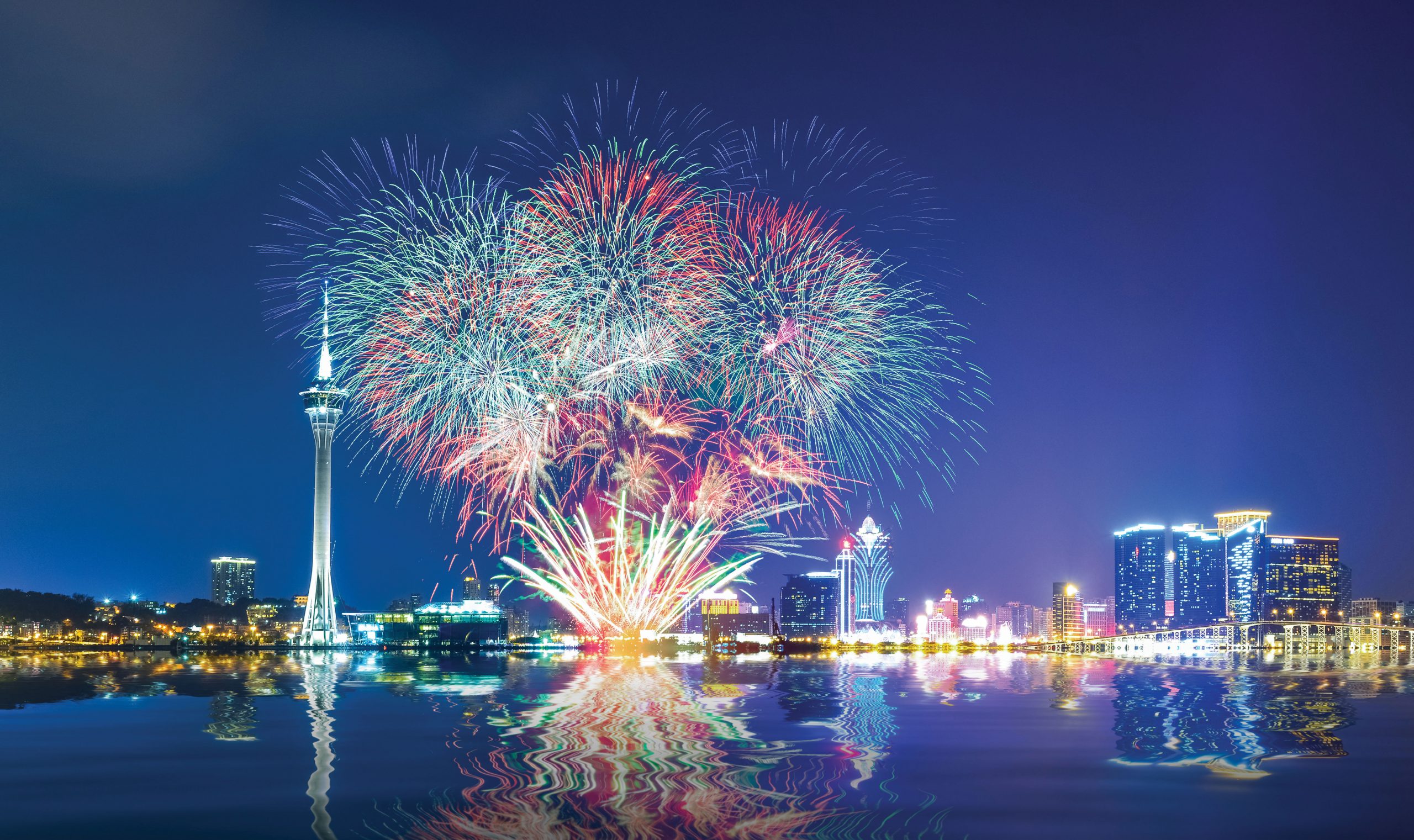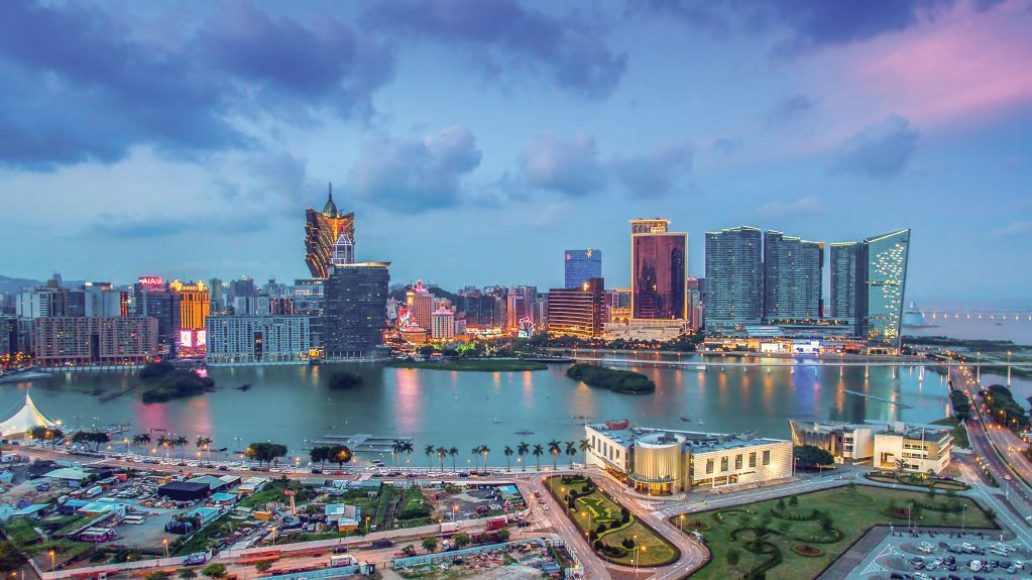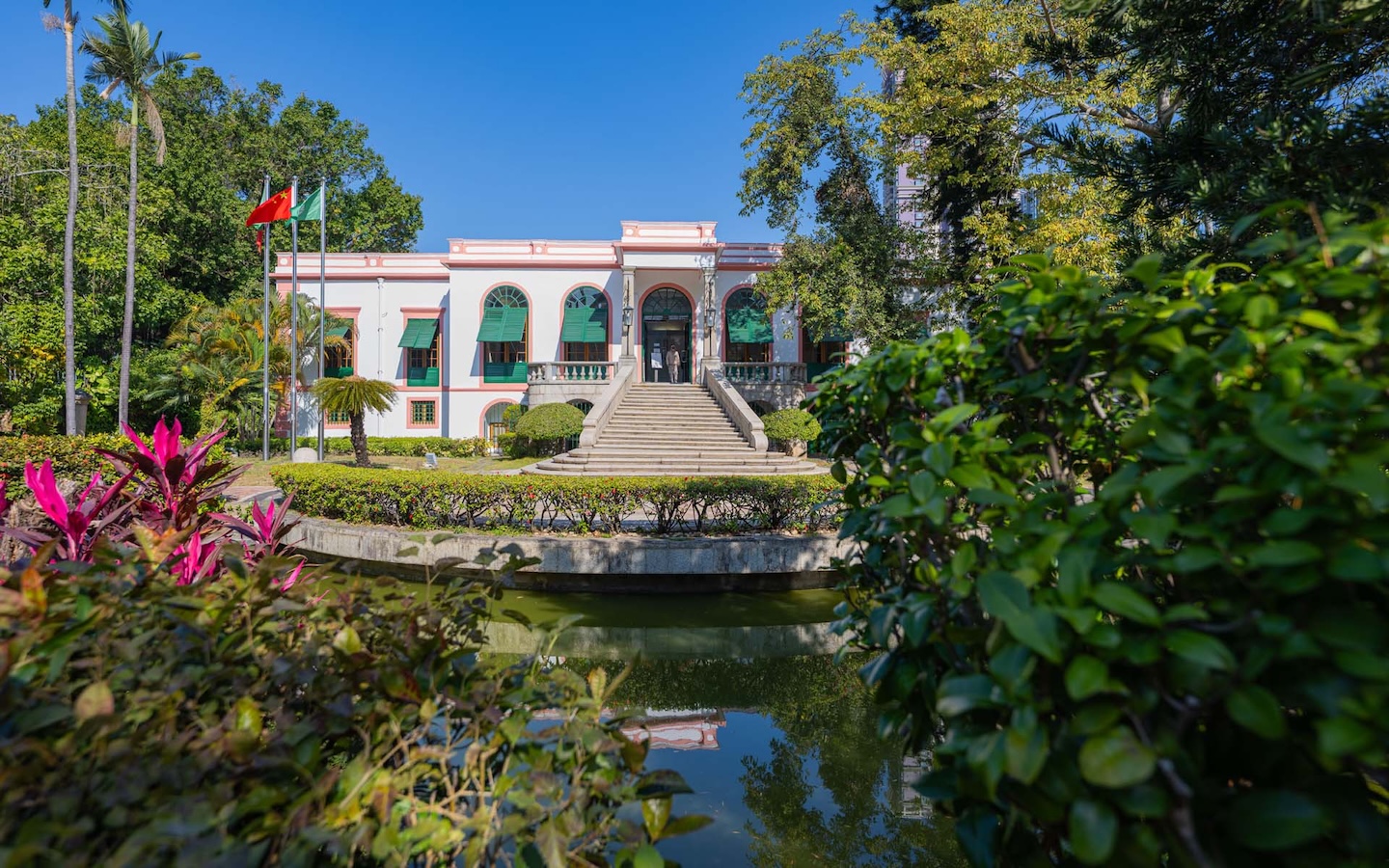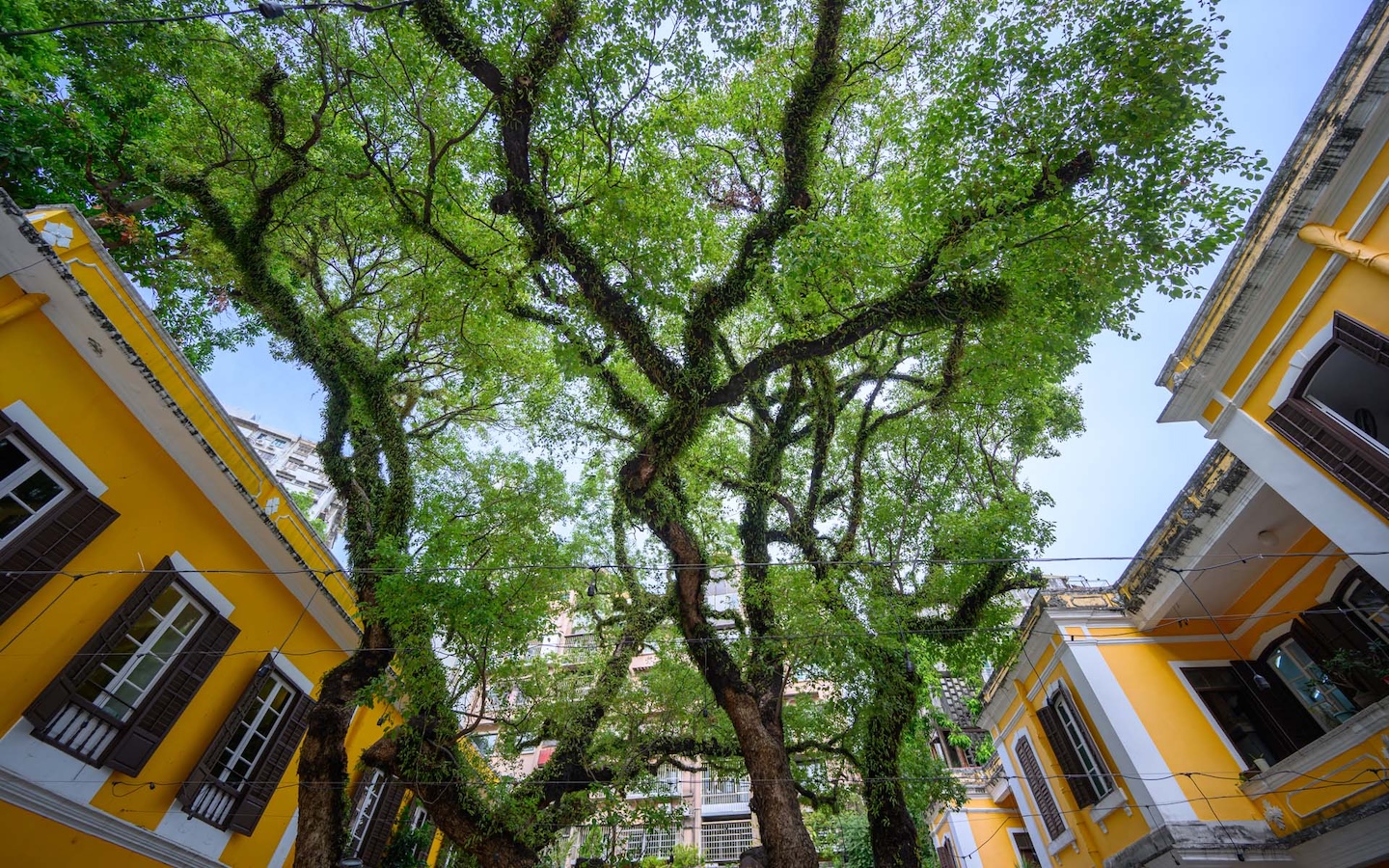
Unprecedented economic growth. Increasing numbers of tourists. A new-look city with a more affluent population. Macao has transformed over the past 20 years. We look back at what’s changed in the SAR since its birth on 20 December, 1999.

Wind the clock back 20 years. Macao was a city of around 437,000 people, occupying an area of just 23.8 square kilometres. It was under the administration of Portugal, as it had been since 1557. It received around seven-and-a-half million visitors a year and had just over 7,000 students enrolled in higher education. Looking around, there were no huge gaming and entertainment resorts – Cotai wasn’t even built yet – and the Bank of China was the tallest building in the city’s skyline. Only two bridges connected Macao to Taipa and the famous Macao Tower was only just under construction.
But on 20 December, 1999, a new dawn broke over Macao. An exciting new dawn that would see this city grow at a rapid rate and become the beautiful, economically vibrant metropolis we know today. The establishment of the Macao Special Administrative Region, a handover of administration from Portugal to China, began an era that would see the social fabric, economic fortunes and actual geography of the city change at a rapid pace.
As the city prepares to celebrate 20 years since the handover of administration on 20 December – at a time when the population stands at almost 670,000, the land area has increased by almost 40 per cent to 32.9 square kilometres, the visitors to the city have rocketed more than 400 per cent to roughly 40 million a year and there are more than 34,000 students in higher education – it’s worth looking back over the past two decades to examine what has got the SAR to the prosperous, dynamic and forward-thinking point it stands at now.
The first steps
Journalist, historian and local author João Guedes has been in Macao since 1987. He was here for the 1999 celebrations. “I believe that the great challenges fell on the SAR’s first Chief Executive, Edmund Ho,” he says, “as he had to guarantee all the great political changes. However, Chui Sai On – who is just now leaving office – maintained Ho’s legacy and took important strides to guarantee one of the great pillars of any society: education.”

Indeed, the numbers corroborate Guedes’ statement. Macao, since before 1999, has gradually grown its higher education offering to four universities and six higher education institutions. The Macau University of Science and Technology, which was founded in 2000, and the Millennium College, established in 2001, are both products of post-1999 Macao, as is the Macau Institute of Management, which was founded in 1988 but upgraded to a higher education institution in 2000. Over the past two decades, under Edmund Ho and Chui Sai On, the SAR has seen an incredible growth rate of just over 380 per cent when it comes to the amount of students in higher education. A testament to the focus the government has put on education.
Teresa Netto Rodrigues arrived in Macao the same way all visitors did back in 1989: via ferry. She had flown from Europe to Hong Kong and then took the boat to Macao’s old ferry terminal. “I was coming from Portugal,” she says, “where I had lived for a few years after having left Mozambique, where I was born.” Rodrigues says she was struck by the buildings and the heat but she stayed until 2010 before returning to Lisbon. She looks back fondly at her years in Macao, however. “It was a completely different city back then,” she says. “Much smaller than it is today. I was fascinated by everything but eventually I realised it had a lot of social problems to be solved.”
Rodrigues came to Macao to serve as one of Governor Carlos Melancia’s advisors and then she served the same role for Vasco Rocha Vieira, the last of Macao’s Portuguese Governors. She says that in 1999, the city was ‘getting into shape’ and the handover of administration, when it came on 20 December, was a ‘smooth process’. “Thanks to the collaboration of the central government,” she says, “it was possible to establish the Special Administrative Region in real social harmony. Looking back, I find it silly that we questioned the viability of the ‘One Country, Two Systems’ principle. It works much better than anyone could imagine.”
Building for the future
Architect José Joaquim Dias specialised in social housing and came to Macao to work at the Housing Institute in 1990. He too recalls just how different the city was back then. “Since 1999,” he says, “I believe the city has changed completely. Not only has it grown in area but the social fabric has changed with it.”
According to Dias, Macao has ‘experienced profound physical changes’ over the past 20 years. “I would say the greatest change to Macao’s landscape since 1999 has been the Seac Pai Van Public Housing Complex in Coloane,” he says. “Macao is a unique case because of its high population density. Even when I first arrived in the city, I was overwhelmed by the sheer amount of people walking on the streets each day. You didn’t then – and you still don’t now – see so many people on busy streets anywhere else in the world, except for in Asia. That’s why the local government was under immense pressure to solve the problem of how to house its population – small space and hundreds of thousands of people. I believe that, all things considered, however, the government has been on the right path – and the massive Seac Pai Van complex illustrates that.”
Dias also recalls how difficult it was to find professionals for all sorts of services and jobs in 1999. “Engineers were difficult to find,” he says. “We were really short on human resources. Everything was a struggle. I have truly found, however, that over the past 20 years, education in Macao has changed. And, as a result, job specialisms. We now find specialised professionals in most areas in the city. A lot has been done to improve education.”


The ripple effect
All of these advances over two decades were made possible thanks to favourable economic conditions – a fact almost universally agreed as to be down to the immense success of the gaming industry, which was liberalised from a previous monopoly in 2002 and massively increased the government’s revenue, meaning, in turn, it was able to provide more public services as a result. “I think that it’s impossible to deny that the SAR government did a great job when it came to managing the end of the gaming monopoly,” says Guedes. “At the time, the gaming liberalisation felt like a shot in the dark. No-one knew what to expect. Now, I feel it is fair to say this was one of the most pivotal moments in the history of the SAR.”

Born and bred in Macao, entrepreneur Joe Liu, who is the director of prepaid contactless smartcard firm Macau Pass as well as the founder of integrated marketing and media company MOME, states that anyone living in town for the past two decades has ‘witnessed remarkable changes’ in ‘all aspects’ of life. “Naturally,” he says, “with big changes, there are always winners and losers. But I still believe the result of this transformation from town to metropolis has been positive.” Liu agrees the gaming liberalisation has been a deciding factor, adding that ‘without the support of the central government, nothing would have been possible’. “The impressive growth of the Chinese economy has had a huge impact on Macao too,” he says. “Without China’s help, Macao would not be what it is today.”
“In the beginning,” continues Liu, “I can see how easy it was to fear the economic reliance on gaming. But two decades later, I can definitely see the ripple effect that gaming has created in society. Every year I see more and more restaurants, cafés and boutiques opening up. And every year, I notice they are getting better and more innovative. This is happening because Macao has grown its tourism and we now receive more than 35 million tourists every year.”
According to Liu, there is another important factor to Macao’s success since the handover of administration. He says that the ‘government has been evolving too’. “As anywhere else in the world,” he says, “the public sector moves at a slower pace than the private companies. However, the Macao government are really broadening their minds. The Young Entrepreneurs Aid Scheme introduced by the government, a programme that provides interest-free loans to residents between 21 and 44 years of age who are planning to start their business, completely changed the lives of many.”
The incredible changes in the Macao Special Administrative Region over 20 years have, to many, been unprecedented. All who have bore witness to the city’s development during this time have seen a great metamorphosis – a metamorphosis that is worth celebrating with hundreds of thousands of city residents on 20 December. A solid infrastructure for the future has been laid out over two decades and the next 20 years and beyond look to be brighter than ever.



